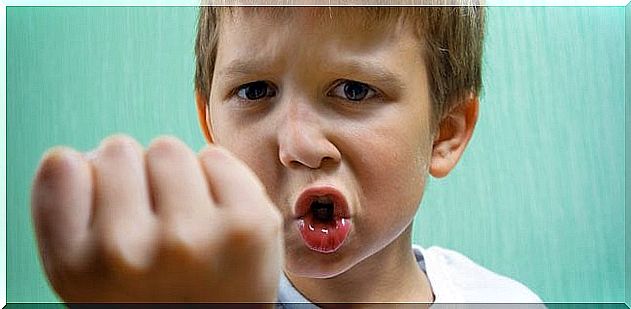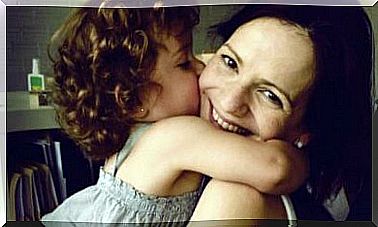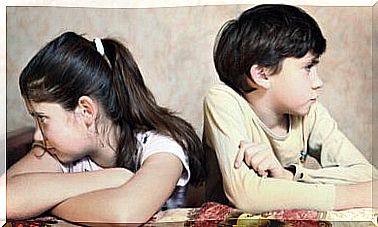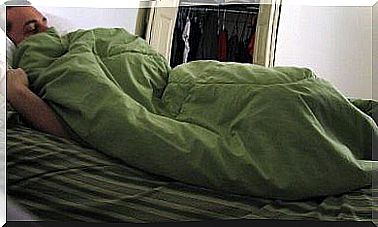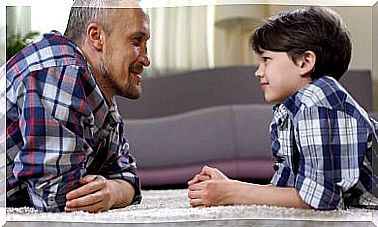The Boy Who Hits His Parents

Too many young children physically or verbally assault their parents when they are angry. This does not have to happen only in families that are unstructured or in children who have suffered abuse. E l child sticking their parents is increasingly widespread in our society.
Child aggression does not have to be associated with any disorder or with any cultural level or purchasing power of their family environment. So why do children hit or insult their parents?
The boy who beats his parents
You may have ever seen a boy or girl who, in the middle of a tantrum, tried to push or hit their parents. It is also possible that you have seen scenes of insults that are not very pleasant to witness.
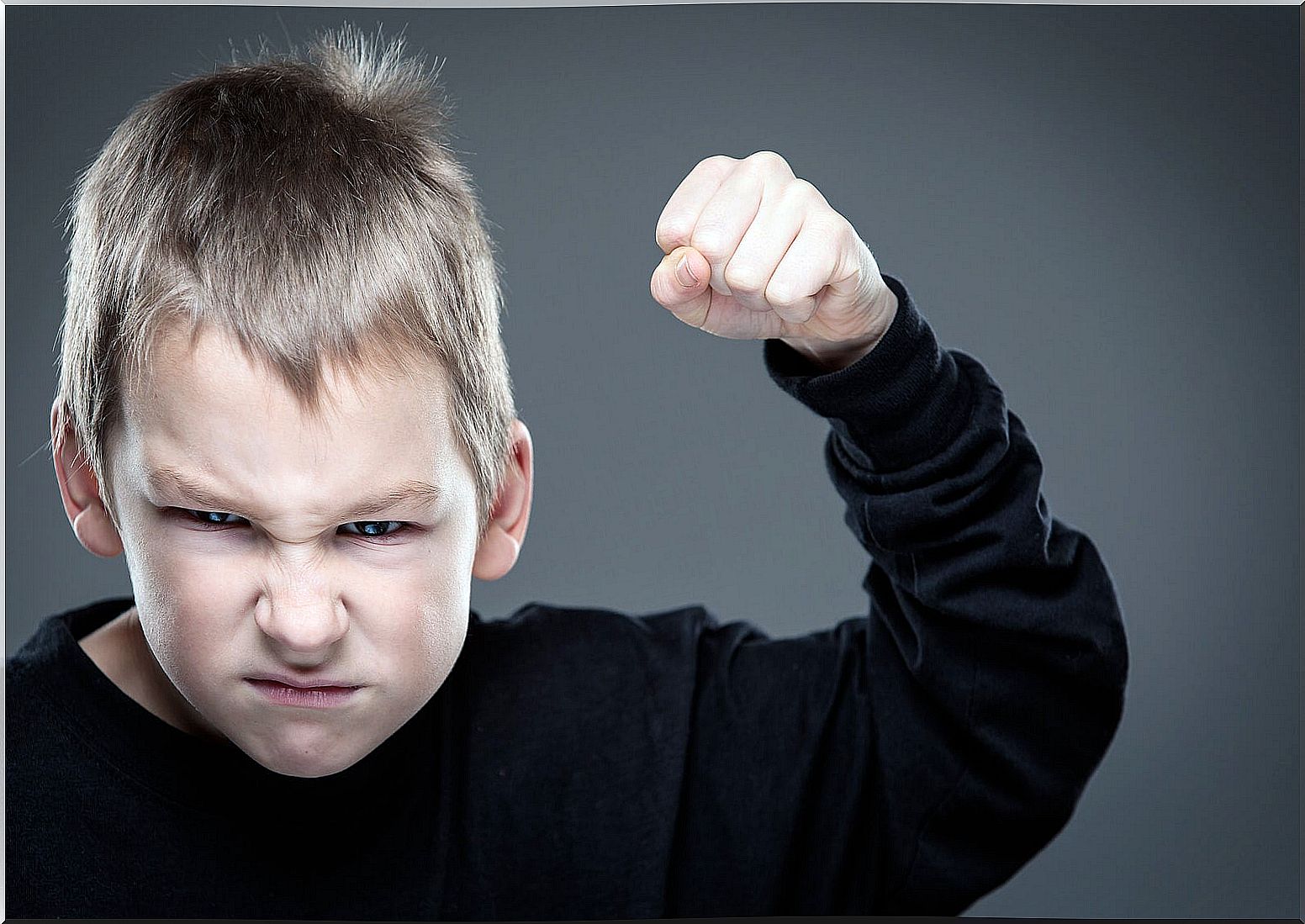
These are situations that impact and that can make you feel tense, since parents do not know how to react to this violence and may even respond with more violence.
This problem always usually occurs due to a host of factors that must be taken into account to understand why the child has a great lack of emotional management. You lack sufficient skills to control the intense emotions you are having at any given moment.
And it can also happen because in the family nucleus there is a lack of norms and limits or that there are too many. In this sense , education that is too permissive or too authoritarian makes children have a low tolerance for frustration, are more impulsive and lack empathy. All this can give birth to aggressive behavior in children.
Age is also an important point to keep in mind. It is necessary to know the age of the child, since a 15-month-old child who hits someone who has taken a toy from him, a 6-year-old child who pushes another before a moment of frustration or a teenager is not the same. 16 who attacks his brother every time he gets angry.
So, next, we are going to see by age why it can happen and what you can do to solve the problem in the event that your child hits you. In this way, you will understand their behavior and you will know how to approach the matter.
The child who hits his parents: 3 or 4 years
The child who hits his parents at this age may have selfish and aggressive behaviors when he has a tantrum. But it is after 3 years when this behavior must be eliminated and, in this way, shape good behavior in the face of frustration or intense emotion.
They are normal reactions to frustration at these ages that, in reality, have no real intention of hurting. It is simply their intense emotional response to uncontrolled explosive anger at not being able to get what they want at any given time.
It is the primary age to begin teaching young children emotional coping strategies to deal with conflicts or negative feelings they may have.
5 or 6 years
At this age, the child may feel that aggression is the only way to get the attention of his parents. She realizes that when she has an outburst of anger, her parents listen to her. Negative reinforcement occurs that enhances this inappropriate behavior in its development.
In this sense, it is essential that you observe your own behavior in the face of aggressive behavior by your child and know if there is something in your behavior that they can imitate in any way. You also have to take into account if there is something in your behavior that can make your little one explode.
Analyze when your son or daughter is calm and demands your attention or help, what he does when you do not listen carefully or do not attend to his needs because you are busy doing other things. What happens when you do not show empathy or availability to their demands.
Children need to feel heard and understood
Children need to feel heard and understood. If you don’t listen to the child normally, he will prefer to have an emotional explosion and thus receive your attention instead of feeling ignored. If you do things violently and help him get what he wants, he will keep doing it. Therefore, your reaction is very important in these types of circumstances.
Not everything that your child asks for has to be taken care of and on many occasions you have to teach him, through empathy and affection, waiting and tolerance for frustration. Even if you don’t give him everything he asks for, pay attention to him and focus your interest on him along with a good understanding. In this way, you can teach him to better handle frustration and the most intense emotions.
You can teach him that he can get the things he wants in other ways, for example, by behaving better without hitting or having aggressive behavior.
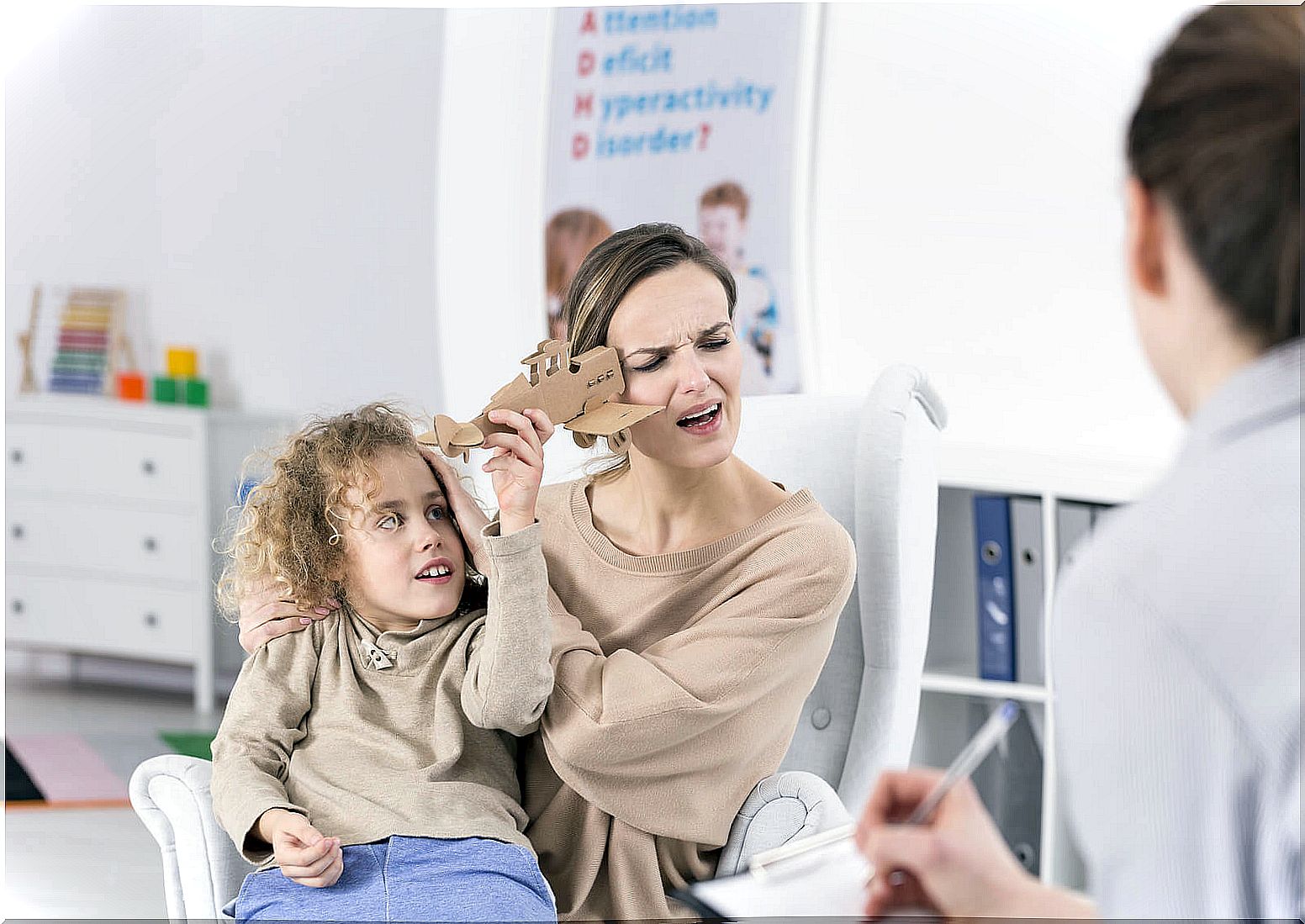
You are his example: what can you do?
Remember that you are their best example and that, therefore, your reaction is essential. Do not lose your papers, do not yell, do not get angry and, much less, hit, because if you do, it is more than likely that your child will also do the same when he gets angry.
On the other hand, if your child has hit you, it is best to remove yourself from the situation to take a deep breath. This way, you can think about how to approach it in a positive way. Whenever the mood is calmer, you can say something like: “I do not like to be hit, so I am leaving and, when you calm down, we can talk and find a solution to what happens to you.”
Follow through on what you say and show your child that you will pay attention to them only when they have calmed down. In this way, you will receive two important messages: that their needs and feelings are important to you and that if someone does not treat us well, we must set limits.
